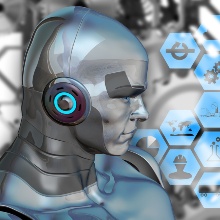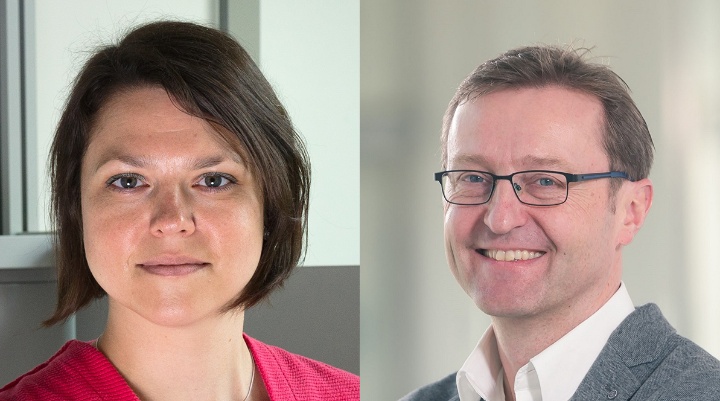What is the impact of intelligent systems on society? The newly founded "Interchange Forum for Reflecting on Intelligent Systems" (IRIS) at the University of Stuttgart aims to address this question. With the election of Junior Professor Maria Wirzberger (Institute of Educational Science) as speaker and Professor Steffen Staab (Institute of Parallel and Distributed Systems) as her deputy, the research network has now kicked off its activities.
One of the university's strategic goals is to build the knowledge society needs to shape its future responsibly. With the IRIS network, researchers aim to cooperate with one another in a process of critical reflection on the foundations, mechanisms, implications, and effects of intelligent systems in research, teaching, and society as a whole. For example, at the interface between AI and ethics, the researchers are examining how discrimination can be prevented when artificial intelligence is used in automated decision-making, or how stereotyping can be avoided in technology development.
"The new IRIS research network illustrates what the University of Stuttgart does especially well: discussing and researching hot topics in an interdisciplinary manner, which includes a broad range of perspectives," said Professor Wolfram Ressel, Rector of the University of Stuttgart. “IRIS brings together scientists from all disciplines at the university, from the AI researcher and the philosopher to the linguist and software engineer. Together, they are working on designing intelligent systems in a manner that is responsible and sustainable. Ultimately, the expertise pooled within the IRIS network will enable us to be leaders in reflecting on intelligent systems.”
Among other things, IRIS spokesperson and Junior Professor Maria Wirzberger and her team are concerned with the question of how technology can discriminate and how this can be counteracted. "Put simply, algorithms are based on standards that are set by people and can thus carry the same stereotypes within them. These stereotypes are often unconscious and thus flow into technology development unnoticed." Co-speaker Professor Steffen Staab works with his team across disciplines to gain a comprehensive understanding of technical decision-making, for instance loan approval through artificial intelligence. "In recent years, we have learned how the naive use of AI for automated decisions can lead to discrimination. For this reason, we are developing new methods to avoid, detect, and explain unfairness," he says.
Other IRIS activities
In addition to research, IRIS creates opportunities for dialog on current ethical and societal challenges related to intelligent systems. Discussions between members of society, industry the university, and beyond focus on topics such as data ethics, informational self-determination, and trustworthy AI. Moreover, IRIS also focuses on teaching: the Reflecting on Intelligent Systems in the Next Generation (RISING) initiative, led by Wirzberger, teaches students across disciplines to critically reflect on intelligent systems.
For a responsible approach to intelligent systems
How does IRIS help address stereotypes in technology development? "The benefit is that students, when they enter the labor force, are sensitized to this issue. Then things like discriminatory technology don't happen to the same extent," says Wirzberger. Secondly, IRIS strengthens the university's international network. When people of different backgrounds come together, good ideas emerge and there is a lively exchange, the scientist says. Scientists from the clusters of excellence and all of the university's disciplines are involved in IRIS. The network is funded by the German Research Foundation (DFG) as part of the Excellence Strategy of the German federal and state governments, as well as by the university's research fund.
Expert Contact:
Jun. Prof. Dr. Maria Wirzberger, University of Stuttgart, Institute of Educational Science, Department of Teaching and Learning with Intelligent Systems, Tel. +49 711 685 81176, E-mail
Prof. Steffen Staab, University of Stuttgart, Institute of Parallel and Distributed Systems, Department of Analytic Computing, Tel. +49 711 685 88100, E-mail



